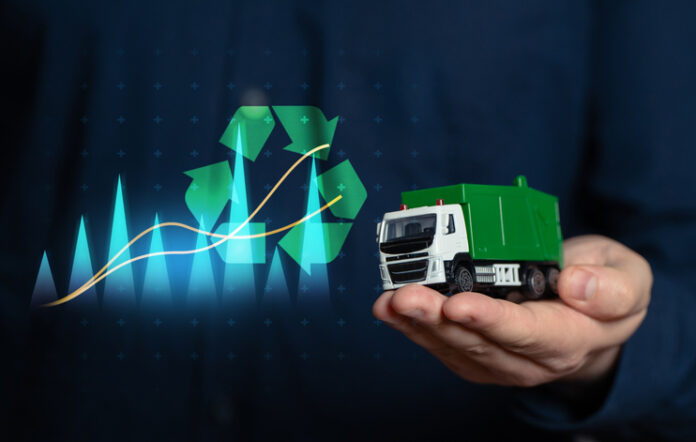In current environmentally charged conversations, businesses and the amount of waste they generate cannot be swept under carpets. As much as a lot of emphasis is placed on the role individuals play in reducing waste and environmental damage, businesses share as much responsibility, if not more.
Landfills contain billions of tons of waste, most of them generated from business spaces. If businesses don’t take waste reduction and management seriously, there’s an increased risk of worsening environmental damage and accelerating climate change.
However, an efficient waste management system for business does not revolve only around using large garbage bags to sort different kinds of waste and diverting them from landfills.
In this article, we explore how your business can improve its waste management program.
Waste Management and What It Has to Do With Your Business
Waste management refers to the entire processes involved in handling waste. From the generation, collection, and transportation to the programs available for recycling and disposal of said waste. It also includes the equipment used in waste handling.
The goal of proper waste management is to reduce environmental impact while getting acquainted with more sustainable ways of dealing with waste.
For businesses, this simply means understanding the kind of waste your business generates, working to reduce it, and recycling where possible.
Why Should Your Business Care About Waste Management?
- By reducing the amount of waste your business generates, you can cut disposal costs.
- Showcasing your commitment to waste reduction and recycling can strengthen your brand’s image and reputation.
- Proper waste management ensures legal compliance, as there are often hefty fines and penalties for non-compliance in many countries
6 Ways Your Business Can Improve Its Waste Management
There are a few ways your business can do better with waste management beyond tossing them in a trash bag. Some of these include:
Auditing Your Waste
Before you can manage waste effectively, you need to understand precisely what your business is producing. Conducting a waste audit is how to get started. This will track the locations, types, and amounts of waste your business generates.
Not only will you identify where reductions can be made, but you will also be aware of which materials can be recycled. Waste auditing answers these questions:
- Are there opportunities to cut down on packaging materials?
- Are you disposing of items that could be reused or repurposed?
- Do employees know how to manage generated waste?
The Waste Hierarchy
Following the waste hierarchy is another way to handle your business’ waste. It is a protocol that prioritizes in the following order:
- Waste prevention or reduction
- Reuse
- Recycling
- Disposal
For instance, while many businesses focus on recycling, reducing waste in the first place is even more impactful. Find ways to limit material use in your business.
You can opt for digital solutions instead of paper. Even better, encourage your suppliers to use eco-friendly packaging.
Reusing materials is next. Not only does it save you the cost of sending your waste to landfills, it helps you give new life to the used materials.
Office supplies and containers can often be repurposed. These options should be considered before recycling and disposal.
Implementing an Efficient Recycling Program
If your business isn’t already recycling, this is the time to start. Materials like paper, plastics, and metals can be recycled instead of sending them to a landfill.
Set up clear recycling stations in your business space. At this point, getting your employees trained on proper waste management procedures is crucial for success with your established recycling program.
Often, you will need different trash bags for glassware, plastics, cardboard, and paper. A good training program on recycling will educate your employees on what should not be going in with the recycled items.
Not Overlooking the Supply Chain
Waste management does not end with what happens within your business walls. The supply chain is very much a part of it.
When sourcing materials, consider their life cycle and how much waste they generate. Opting for suppliers who use sustainable packaging, produce minimal waste, or offer take-back programs for end-of-life products can make a huge difference.
Compost Organic Waste
If your business deals with food or organic materials, composting is a great way to manage this waste sustainably. By setting up a composting system, you can convert organic waste into nutrient-rich fertilizer, either for internal use or by partnering with local farms.
This strategy works particularly well for restaurants, grocery stores, and food manufacturers. However, it can also apply to any business with a cafeteria or kitchen.
Partner with a Waste Management Company
Finally, for businesses that produce large amounts of waste, working with a professional waste management company can make all the difference. These companies can help ensure proper disposal and recycling while staying compliant with local regulations.
Bottom Line
By committing to better waste management practices, your business not only helps protect the environment but also strengthens its bottom line, reputation, and legal standing. With thoughtful strategies, you can turn waste management from a challenge into a golden opportunity for growth and innovation.



































